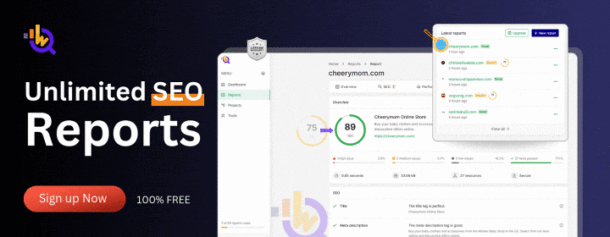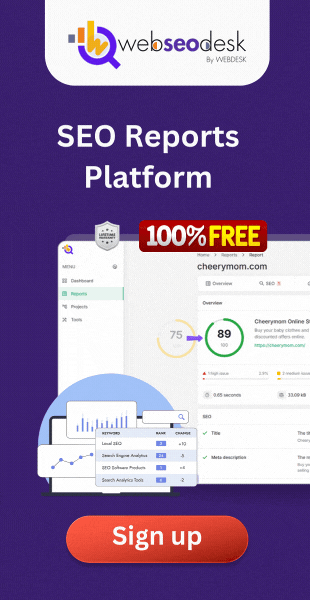Every dollar spent counts for startups, and when it comes to marketing, search engine optimization (SEO) is sometimes disregarded because of supposed high expenses. To be effective, though, SEO doesn’t have to be costly. Indeed, by implementing effective tactics, startups and small companies can achieve remarkable success without incurring significant costs. This post provides doable SEO advice for startups with low resources.
- Begin with keyword research.
Any SEO plan is built mostly on keyword research. It entails spotting the terms and phrases your target readers could be looking for. Free keyword research tools available to you to identify keywords pertinent to your company include Google Keyword Planner, Ubersuggest, and Answer the Public.
Pay close attention to long, more specialized search queries—long-tail keywords. Usually having less competition, these keywords are perfect for businesses with tighter budgets. For instance, you might target “cheap fitness classes in [city name] rather than a general keyword like “fitness.”
- Optimize On-Page SEO
On-page SEO refers to the adjustments you make directly on your website to boost its visibility. This includes optimizing titles, meta descriptions, header tags, graphics, and content.
Make sure every page of your website has an original, clear title with your goal keywords.
Create strong meta descriptions that faithfully capture your website and draw readers in to click.
Header Tags: Use header tags (H1, H2, etc.) to arrange material and make it easier for search engines to grasp the structure of your page.
Image Alt Text: Adding alt text to images makes them accessible to search engines and helps improve ranking.
Simple to use, these on-page SEO elements can greatly improve the SEO of your website without any financial outlay.
- Emphasize content creation.
Among the most crucial elements in SEO is quality content. Giving your target audience pertinent, valuable information that addresses their questions is absolutely vital. Frequent publishing of excellent blog entries, essays, or guides will draw natural visitors to your website.
These reasonably priced approaches help to produce material:
Turn blog entries into social media updates, videos, or infographics. This lets you best value your material.
Encourage consumers to leave reviews or quotes or ask questions you can address in blog entries.
Respond to inquiries by listing typical questions in your field of work and offering on your website thorough, exact answers.
Though it doesn’t call for a large budget, content creation does demand consistency and value. Great material will eventually help to raise rankings.
Create a strong backlink profile.
In SEO, backlinks are a major ranking consideration. They serve as sponsors for your website, so tell search engines your material is reliable and worth it. Although creating backlinks can take time, there are several inexpensive approaches to do so.
Guest Blogging: Send guest entries to pertinent industry blogs. In exchange for high-quality content, you can get backlinks to your website.
Influencer Outreach: Reach out to influencers in your niche for partnerships, reviews, or mentions that can offer backlinks.
Local Directories: Submit your business to free web directories such as Google My Business, Yelp, and others.
Focusing on creating natural, high-quality backlinks will boost your site’s authority and SEO rankings, which can bring more organic visitors.
- Improve User Experience (UX)
User experience (UX) is a key aspect in SEO. If visitors to your website have a poor experience, they’re less likely to stay, interact with your content, or convert into customers. Google takes certain user habits into account when ranking pages.
Here are some straightforward and cost-effective solutions to improve UX:
Mobile Optimization: Ensure your website is mobile-friendly, as mobile traffic accounts for a substantial amount of web browsing. Use responsive design to make sure your site appears fantastic on any device.
Fast Loading Times: Page speed is a ranking factor for Google. Use free tools like Google PageSpeed Insights to uncover ways to speed up your site, such as compressing graphics and minifying code.
Clear Navigation: Simplify your website’s navigation to make it easy for users to find what they’re looking for. A clear and logical layout will aid both people and search engines.
- Leverage Free SEO Tools
Being a startup with a small budget, you can use various free SEO tools to help monitor your development, hunt prospects, and properly improve your website.
Several well-known free tools are:
Google Analytics tracks user activity, website traffic, and conversion rates.
Track keyword ranks, check search engine performance on your website, and find crawl mistakes using Google Search Console.
Ubersuggest: An open keyword search engine with SEO audit powers as well.
A free plugin called Yoast SEO (for PHP) guides you through the process of enhancing titles, meta descriptions, and more, so it helps to improve on-page SEO.
Startups would find great use for these free tools in tracking SEO initiatives and enhancing site performance without making any money spent.
- Apply Local SEO
Local SEO is crucial, especially for startups. Emphasizing local searches will help you stand out in your neighborhood and draw in surrounding business patrons. The following guides help you maximize local SEO:
Create a Google My Business profile with correct business information, hours, pictures, and client reviews.
List your company in local directories and websites unique to your area.
Create material aimed at your local audience by including your city, neighborhood, or region in your keywords and ideas.
Local SEO can drive focused traffic to your website, raising your chances of drawing clients from nearby areas.
- Track and Measure Your Results
Understanding what’s working and where you need development requires knowing your SEO progress. To track natural traffic, keyword searches, and user interaction, set up Google Analytics and Search Console This data will guide your future SEO decisions and help refine your strategy over time.
Finish
SEO is affordable, even for startups with limited resources. Startups can greatly raise their SEO results by concentrating on keyword research, optimizing on-page SEO, producing excellent content, developing backlinks, enhancing user experience, and employing free tools. Key are consistency and patience since SEO results take time to emerge. But with the correct strategy, even tiny companies can see a notable increase in search results and visitors without going broke.












0 Comments